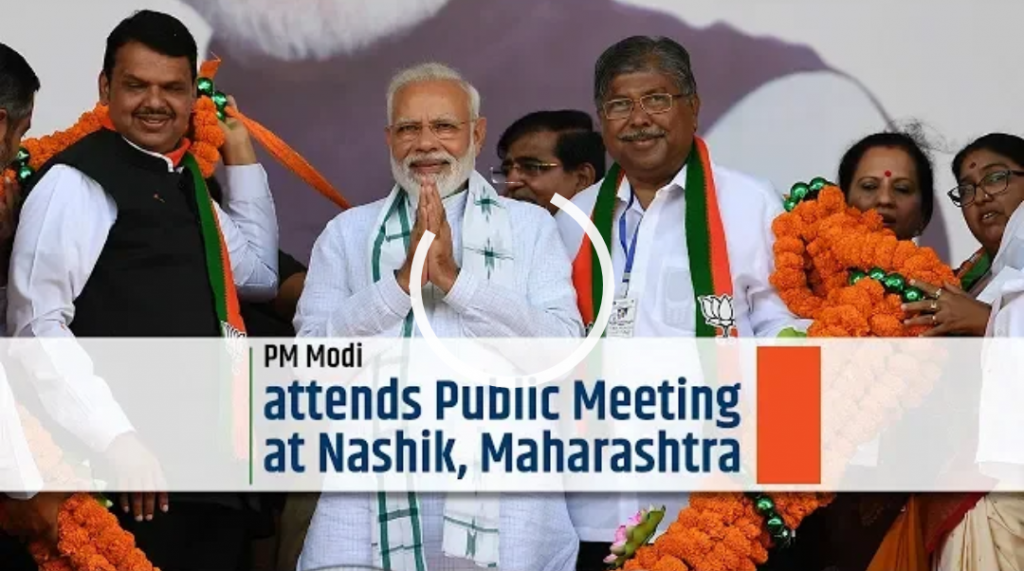
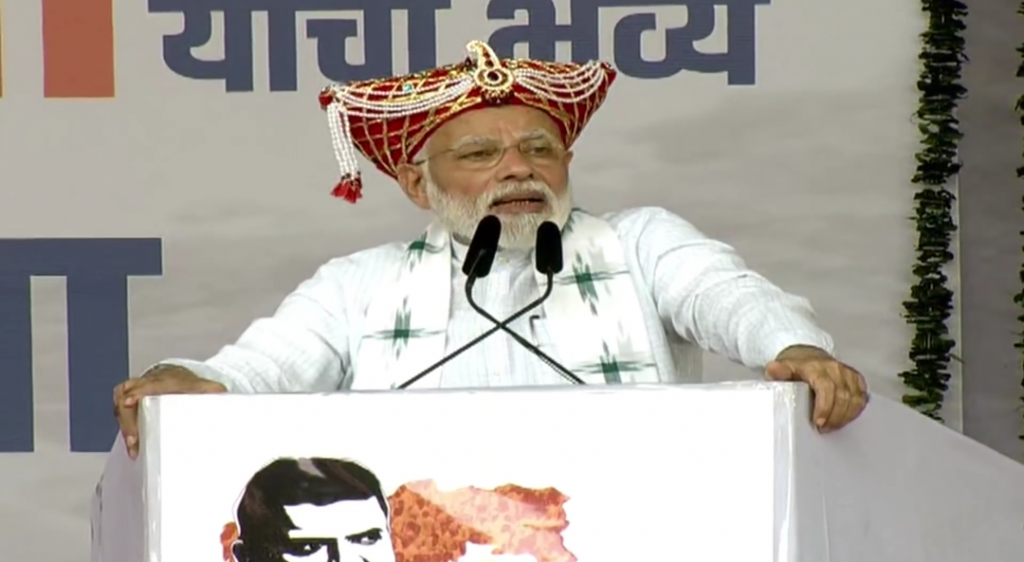
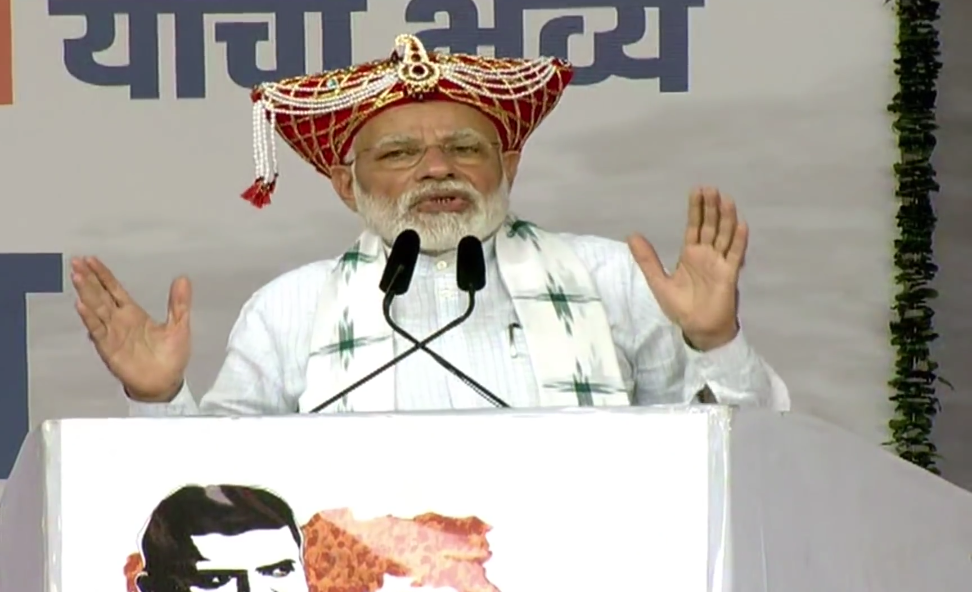
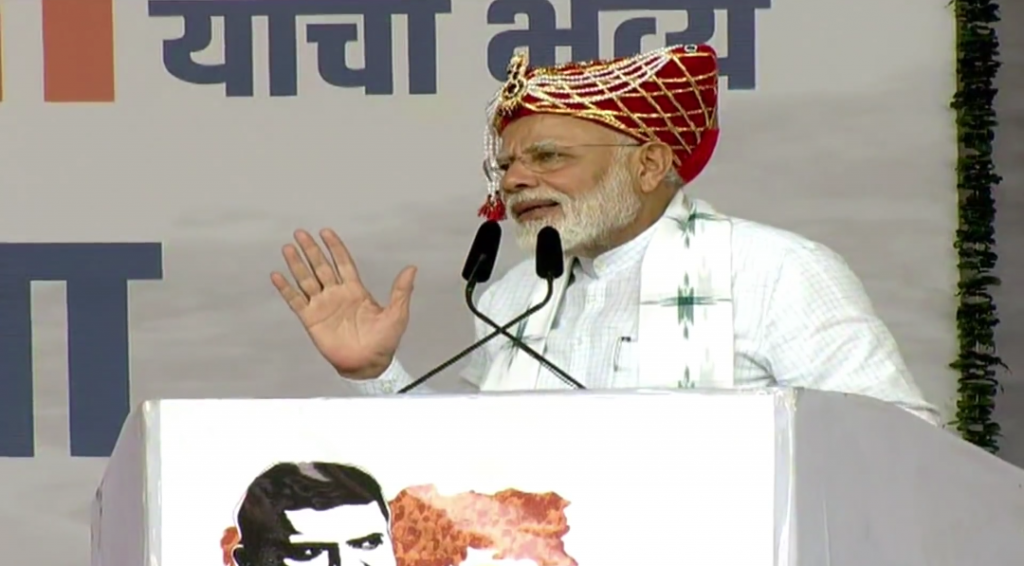 With no internet and mobile services in the Kashmir Valley for more than 49 days now, Today Sunday being the 49th day of the internet blockade
With no internet and mobile services in the Kashmir Valley for more than 49 days now, Today Sunday being the 49th day of the internet blockade
MUMBAI, 22 SEPTEMBER, 2019 (GPN):Though diplomatic reactions on Kashmir have been muted, the Indian government faces criticism from the media and human rights organizations. India has taken steps to avoid this type of pressure — in addition to press restrictions in Kashmir, especially on foreign reporting, it has also cracked down on NGOs.
BJP vice-president Shyam Jaju, Union Ministers Krishan Pal Gurjar and Kiren Rijiju are scheduled to address one meeting each at Jammu, Rajouri and Leh on 22nd, 26th and 29th of this month.
Union Ministers V K Singh and Mukhtar Abbas Naqvi are also scheduled to address the meetings. Mr Naqvi is scheduled to speak on October 3 in Kargil, while Mr Singh will speak in Doda.
The “Jan Jagran Abhiyan” (public awareness campaign) was launched by the BJP in favour of the abrogation the state’s special status under Article 370 of the Constitution. Under it, the party has decided to organise 370 small indoor meetings and 35 big meetings across the country, including six in Jammu and Kashmir.
Seeking to rebuild the nationalist pitch once again that helped it win Lok Sabha polls with its biggest majority so far, BJP has made abrogation of Article 370 in Jammu and Kashmir its main poll plank for assembly polls in Maharashtra, Haryana and Jharkhand, the first major electoral exercise after the general elections.
A gleaning of election speeches of top BJP leaders proves how J and K and 370 remains the main poll plank of the ruling party for this round of assembly polls in the three states, the first major electoral exercise after Modi govt came to power. All the three states go to polls in October-November this year.
Provisions of Article 370 of the Indian Constitution, which was passed in 1954 through a Presidential Order, was scrapped by the Narendra Modi government on August 5. The Union government also passed a bill that split the state into two Union Territories–Jammu and Kashmir and Ladakh.
The Supreme Court on 16th September heard petitions against the media and communication restrictions in Jammu and Kashmir, which were imposed in the Valley following the revocation of Article 370 as well as the validity of the abrogation in itself.
A bench of Chief Justice Ranjan Gogoi and Justices S A Bobde and S Abdul Nazeer heard a bunch of fresh petitions, including the one filed by former Jammu and Kashmir Chief Minister Ghulam Nabi Azad seeking permission to visit his family members and relatives.
The list of petitions heard included:
- Congress leader Ghulam Nabi Azad, who had tried to visit the state twice after the abrogation of Article 370 provisions in Jammu and Kashmir but was sent back from the airport by the authorities, has sought a nod from the top court to visit his family members.
- Jammu and Kashmir People’s Conference party led by Sajjad Lone has also challenged the abrogation of provisions of Article 370 and the validity of the state Re-organization Bill.
- Child right activists Enakshi Ganguly and Professor Shanta Sinha have also filed a plea against the alleged illegal detention of children in Jammu and Kashmir since the revocation of special status.
- A plea of Rajya Sabha MP and MDMK founder Vaiko is also listed for hearing, in which he has sought a direction to the Centre and Jammu and Kashmir to produce former Chief Minister Farooq Abdullah, allegedly under detention following the abrogation of Article 370, before the court.
- In his plea, Vaiko has said that authorities should allow Abdullah to attend a “peaceful and democratic” annual conference, being organised in Chennai on September 15, on the occasion of the birthday of former Tamil Nadu Chief Minister C N Annadurai.
- The plea of CPI(M) Sitaram Yechury who had moved the apex court seeking to see his ailing party colleague Mohammed Yousuf Tarigami is also among the batch of petitions listed for hearing. The top court had allowed him to pay a visit to Tarigami but with certain conditions and had granted him liberty to file a report on his return.
- The plea of Kashmir Times editor Anuradha Bhasin seeking the removal of media restrictions imposed in the valley after the abrogation of Article 370 will also be taken up along with some other petitions.
The top court is going to hear the petition of Anuradha Bhasin, the Executive Editor of Kashmir Times, who told the court that even after a month of annulling provisions of Article 370, journalists in the Valley were “not allowed to move freely”.
“It is difficult for journalists to travel beyond Srinagar, making it difficult to report,” the editor further alleged.
However, Solicitor General Tushar Mehta pointed out to the court that editors of Kashmir Times chose not to publish their newspaper from Srinagar.
Meanwhile, advocate Vrinda Grover, appearing for the journalist, claimed that the Editor-in-chief of Kashmir Times travelled to many parts in the Valley and according to her, media cannot work due to “communication restrictions”.
With no internet and mobile services in the Kashmir Valley for more than 49 days now, Today Sunday being the 49th day of the internet blockade, Journalists in the Valley are having a hard time.

Security forces in patrol during the shutdown in Srinagar. Photo: PTI/S. Irfan
Modi’s Digital India Comes Crashing Down in Kashmir’s Longest Ever Internet Gag
Sunday is the 49th day of the internet blockade.
Srinagar: On September 12, Jammu and Kashmir government spokesperson Rohit Kansal justified the ongoing internet blackout by saying that there are fears that Pakistan might misuse the internet in Kashmir to foment trouble. He was confronted with a question by a journalist: “Pakistan will be there always. When has government ceded its authority to Pakistan over the issue?”
Kansal fumbled in his response. Ultimately, after facing a volley of queries on the unprecedented internet gag in the Valley, he winded up the interaction, saying: “This too shall pass.”
This was ten days ago. Since then, Kansal has not addressed the press.
Sunday is the 49th day of the communications blockade. With no word from the government on how long this will go on, Kashmir remains disconnected from the outside world, digitally.
Un-digitalising Kashmir
From ramparts of the Red Fort in New Delhi on August 15, Prime Minister Narendra Modi gave a fresh push to his Digital India programme. “Yes to digital payment, no to cash,” Modi said.
More than 800 km away, Modi’s dream project of empowering the common man with the internet and transforming India into a digitally powerful society has come crashing down.
An official said that within hours of New Delhi’s move to read down Article 370 and bifurcate the state into two union territories on August 5, the police raided a number of internet service providers and even rounded up some of them in Srinagar to enforce the strict clampdown.
Since then, all mobile and internet facilities remain suspended.
Also read | ‘Appalled by Restrictions’: Academics, Scientists Express Concern Over Kashmir
With no internet, four-year-old Aisha is unable to watch her favourite cartoon series on her father’s mobile phone. The television set in her house is also lying lifeless, as her parents have no way to recharge their set-top box.
Sixteen-year-old Mohammed Mohsen has missed the deadline for filling the Graduate Aptitude Test for Engineering form online.
Twenty-nine-year-old Imtiyaz Hussain, an IT professional in Srinagar’s Rangreth, has been sacked by his company.
“Even an ordinary Kashmiri has been robbed of the right to remain socially connected and updated about the happenings in the world of internet and social media,” said Azhar Baba from central Kashmir’s Budgam district. “Here if you are dependent on internet, then you can’t have the liberty to excel in your academic career, take a job with a private IT company or even just watch a series of your choice.”
Baba is preparing for the IAS exams. He said the gag has hit his studies badly.
“I’m now planning to move to New Delhi for some time,” said 27-year-old Baba. “With the internet snapped indefinitely, the word ‘netizen’ has no meaning in Kashmir.”
The media has been badly hit during the ongoing communication blockade.
Without an easy way to send news reports to their organisations within the country or outside, some journalists resorted to sending their reports on pen drives through flyers at the airport, as the government began the communication clampdown.
Also read | Kashmir Boy Dies By Suicide After Allegedly Being Beaten by Soldiers
“During the first week of the clampdown, I would send my report on a pen drive through anyone visiting New Delhi. There, people from our bureau would collect the pen drive,” said a journalist working with a foreign news agency. “The photojournalists working with outside news agencies too adopted this method to send their photographs.”
After criticism, the government set up a media centre in Srinagar. The Centre has nine computers with just one internet connection, and journalists have to wait for their turn to send reports and check mails.
Kashmiri youngsters, meanwhile, are craving to access social media platforms – Facebook, Twitter, YouTube, Instagram and WhatsApp.
The gag has even frozen some of the government of India’s flagship programmes. Aadhaar registration, for instance, has come to a grinding halt, while various health schemes like AYUSH are suspended.
Businessmen and industrialists have been left crying for an extension in the last date for submitting income tax and Goods and Services Tax returns.
“This is the reality of digital India in Kashmir today,” said Abdul Majeed Bhat, a businessman. “I have not been able to file my returns since the imposition of the communication blockade.”
Longest-ever internet gag
While the internet being cut off is not new in Kashmir, this is the longest-ever blockage the region has ever witnessed. In 2016, when Kashmir saw five months of protests and unrest, the internet was blocked only for 10 days.
“That time (in 2016), the internet was suspended for around 240 hours to 280 hours, but during the ongoing gag, the internet has already remained suspended for more than 4730 hours,” said an official, asking not to be named.
Over the years, particularly after 2008 when the Valley witnessed its first mass uprising against the transfer of forest land to the Amarnath shrine board in Pahalgam, the region has seen most number of internet shutdowns across different states.
In order to avoid any untoward incident of violence, the Valley continues to remain under heavy lockdown, barring relaxation of a few telephone lines.
Even though landline phones have been restored early this month, mobile services and the internet – on any platform – remain snapped. Harried journalists are now demanding that the government should at least restore broadband connections of media houses.

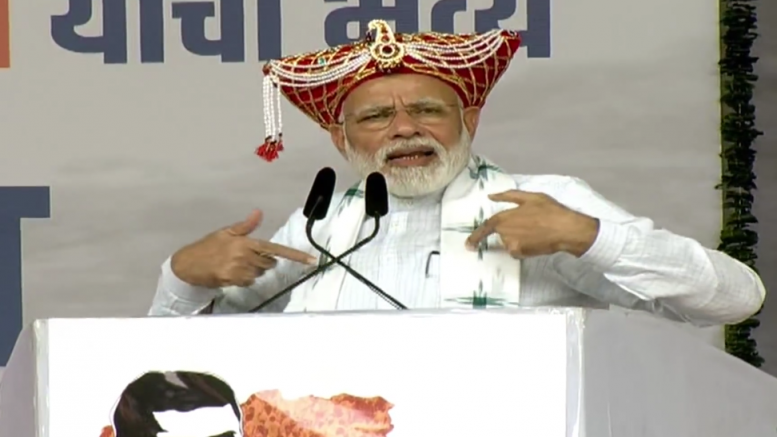
Be the first to comment on "With Article 370 still under fire of abrogation BJP plans to hold 370 small indoor meetings and 35 big meetings pan India"